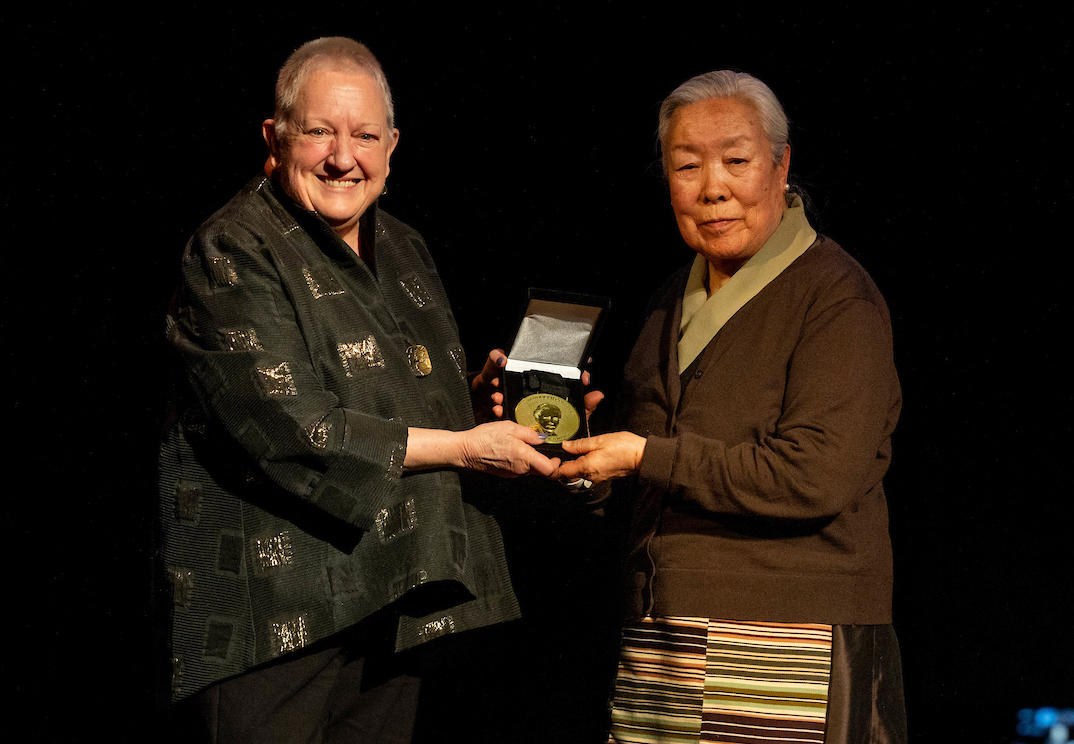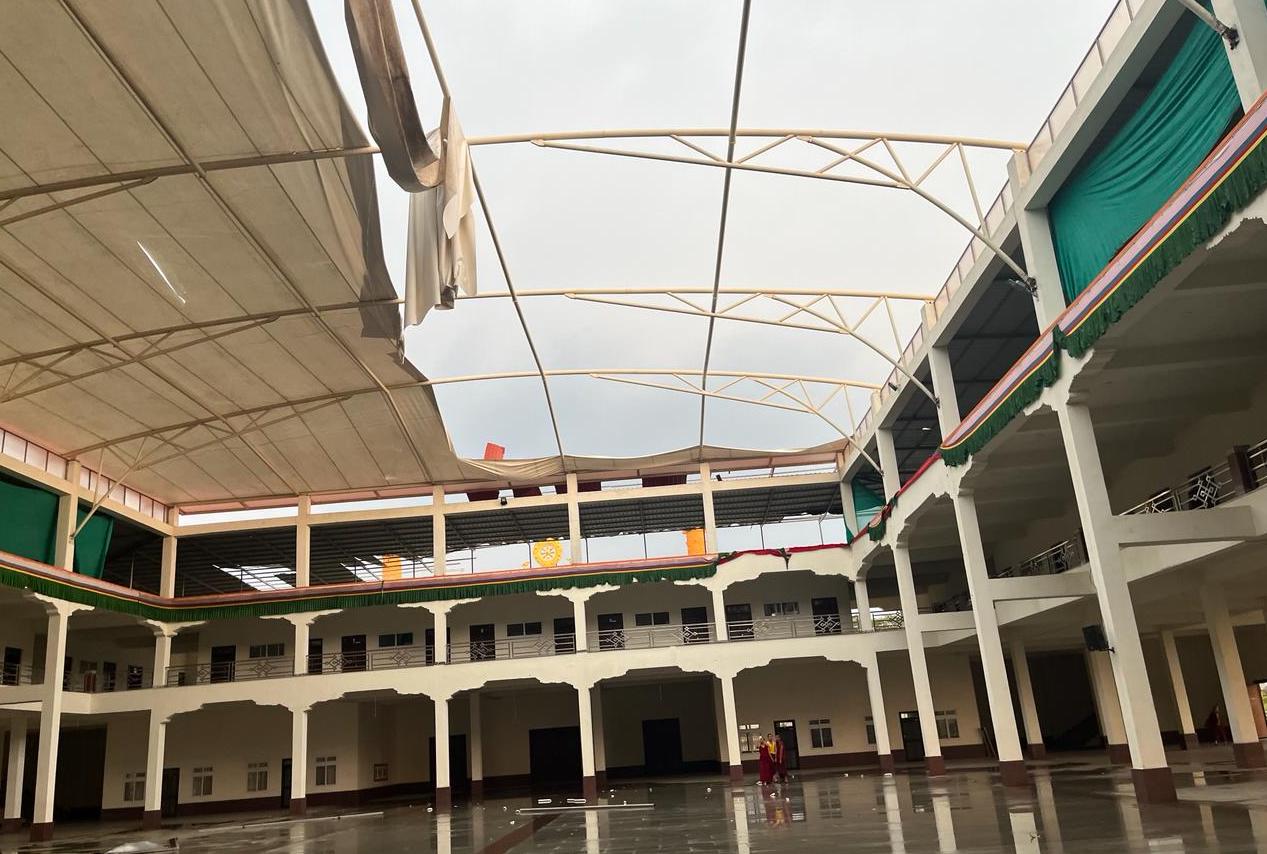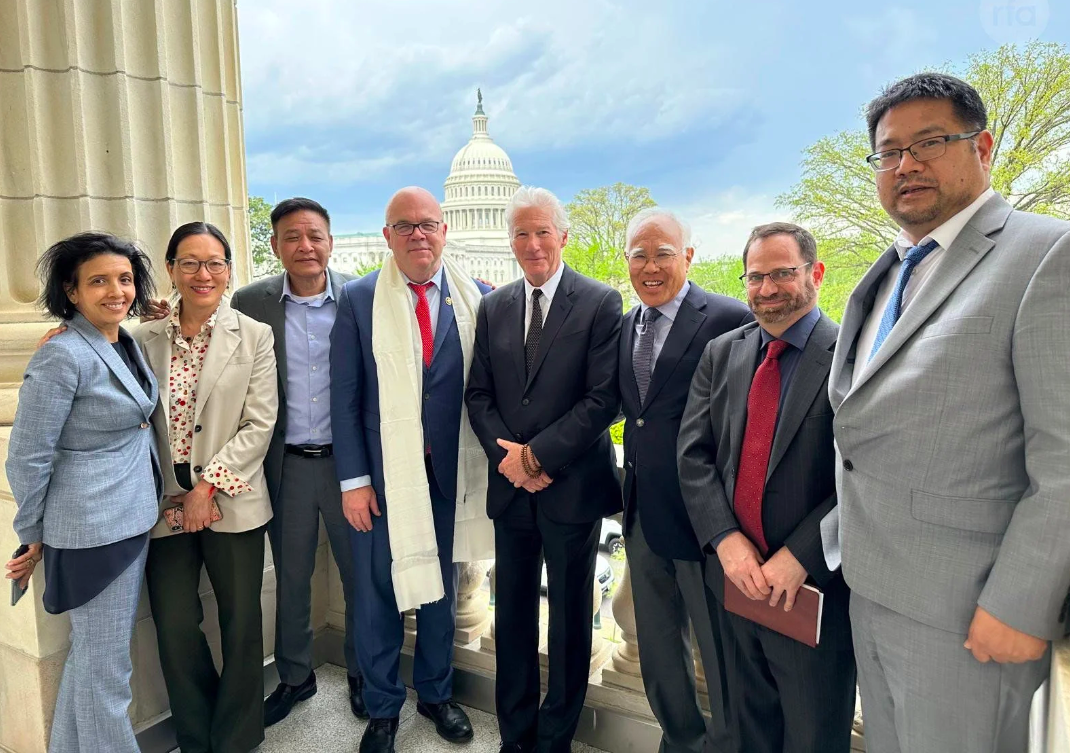By Louis Charbonneau
UNITED NATIONS – The U.N. Security Council will likely keep silent about China’s crackdown on demonstrations in Tibet, mostly due to belief that provoking Beijing would accomplish nothing, diplomats said on Monday.
China, which has sent in troops to enforce control in the regional capital Lhasa, said earlier that the violent protests by Tibetans were organized by followers of the Dalai Lama seeking to derail the Beijing Olympics in August. Tibet’s exiled spiritual leader has denied this charge.
“The issue did not come up in the council,” China’s Deputy permanent U.N. representative Liu Zhenmin told Reuters after a meeting of the council on unrelated issues.
“This has nothing to do with peace and security,” he said. “It is local violence, … a domestic issue.”
China, like the United States, Britain, France and Russia, is a permanent veto-wielding member of the council and would be able to block any attempts by the council to act on Tibet.
Russia’s U.N. Ambassador Vitaly Churkin, currently president of the council, told reporters without elaborating that he did not expect the 15-nation Security Council to discuss Tibet. Several other ambassadors confirmed this view.
One diplomat from a council member country, speaking on condition of anonymity due to the sensitivity of the issue, told Reuters that the council would likely remain silent.
“I think the idea is that even calling for a discussion of this issue would be rejected by the Chinese and people wonder whether this would accomplish anything,” he said.
Another diplomat confirmed this view. He also declined to be identified.
NO SURPRISE
Jamie Metzl, vice president of the Asia Society, a New York-based organization that promotes U.S.-Asian ties and awareness about Asia, said the council’s silence was no surprise.
“The Security Council is and always has been a politicized organization,” he said, adding that China had enormous influence as a veto-wielding member of the council.
“But the Chinese authorities recognize that their ability to act forcefully in Tibet is limited … particularly in the run-up to the Olympics,” Metzl said.
He said that there were other international forums that could deal with the issue. He added that key council members like the United States and France had already issued national statements calling for restraint on the part of China.
The council has in the past taken up issues that some countries have said were purely domestic. After Myanmar authorities cracked down on anti-government protests in the country last year, the U.N. Security Council issued a statement saying it “deeply regrets” the junta’s brutal suppression of protesters.
Myanmar complained about the statement, which its neighbor and trading partner China supported, saying the crackdown was a domestic matter unrelated to international peace and security.
The Security Council has also traditionally been loath to provoke Washington by bringing up issues related to Pakistan, a key U.S. ally in Washington’s fight against terrorism.
U.N. High Commissioner for Human Rights Louise Arbour on Friday urged the Chinese to allow demonstrators to protest and to ensure that all detainees were treated properly.
(Editing by Eric Walsh)









